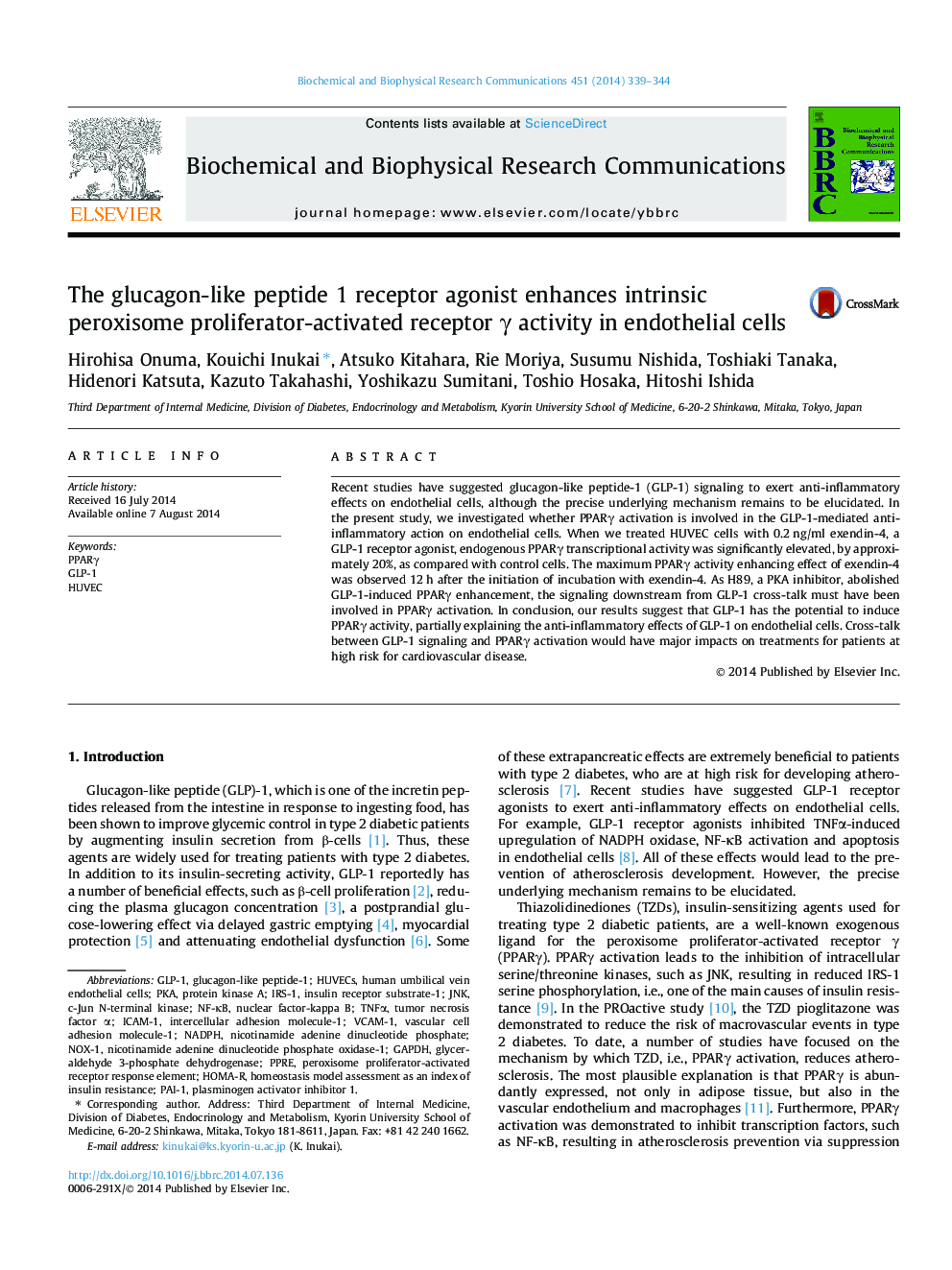| Article ID | Journal | Published Year | Pages | File Type |
|---|---|---|---|---|
| 10754225 | Biochemical and Biophysical Research Communications | 2014 | 6 Pages |
Abstract
Recent studies have suggested glucagon-like peptide-1 (GLP-1) signaling to exert anti-inflammatory effects on endothelial cells, although the precise underlying mechanism remains to be elucidated. In the present study, we investigated whether PPARγ activation is involved in the GLP-1-mediated anti-inflammatory action on endothelial cells. When we treated HUVEC cells with 0.2 ng/ml exendin-4, a GLP-1 receptor agonist, endogenous PPARγ transcriptional activity was significantly elevated, by approximately 20%, as compared with control cells. The maximum PPARγ activity enhancing effect of exendin-4 was observed 12 h after the initiation of incubation with exendin-4. As H89, a PKA inhibitor, abolished GLP-1-induced PPARγ enhancement, the signaling downstream from GLP-1 cross-talk must have been involved in PPARγ activation. In conclusion, our results suggest that GLP-1 has the potential to induce PPARγ activity, partially explaining the anti-inflammatory effects of GLP-1 on endothelial cells. Cross-talk between GLP-1 signaling and PPARγ activation would have major impacts on treatments for patients at high risk for cardiovascular disease.
Keywords
pKaVCAM-1PAI-1IRS-1GLP-1HOMA-RNOX-1NF-κBPPARγHUVECICAM-1HUVECSGAPDHNADPHJnkTNFαc-Jun N-terminal kinasePPREinsulin receptor substrate-1tumor necrosis factor αHuman umbilical vein endothelial cellsperoxisome proliferator-activated receptor response elementNuclear factor-kappa Bplasminogen activator inhibitor 1intercellular adhesion molecule-1vascular cell adhesion molecule-1nicotinamide adenine dinucleotide phosphateprotein kinase Aglucagon-like peptide-1glyceraldehyde 3-phosphate dehydrogenase
Related Topics
Life Sciences
Biochemistry, Genetics and Molecular Biology
Biochemistry
Authors
Hirohisa Onuma, Kouichi Inukai, Atsuko Kitahara, Rie Moriya, Susumu Nishida, Toshiaki Tanaka, Hidenori Katsuta, Kazuto Takahashi, Yoshikazu Sumitani, Toshio Hosaka, Hitoshi Ishida,
